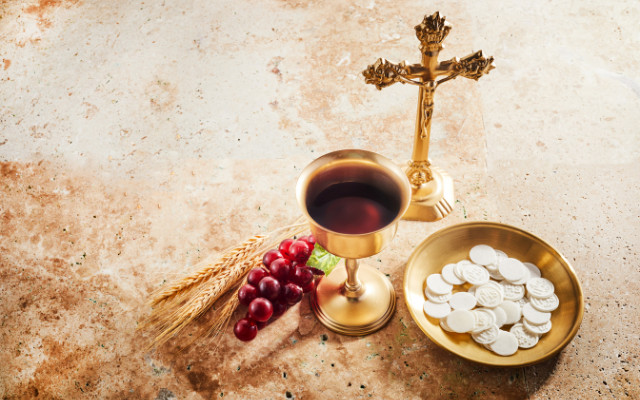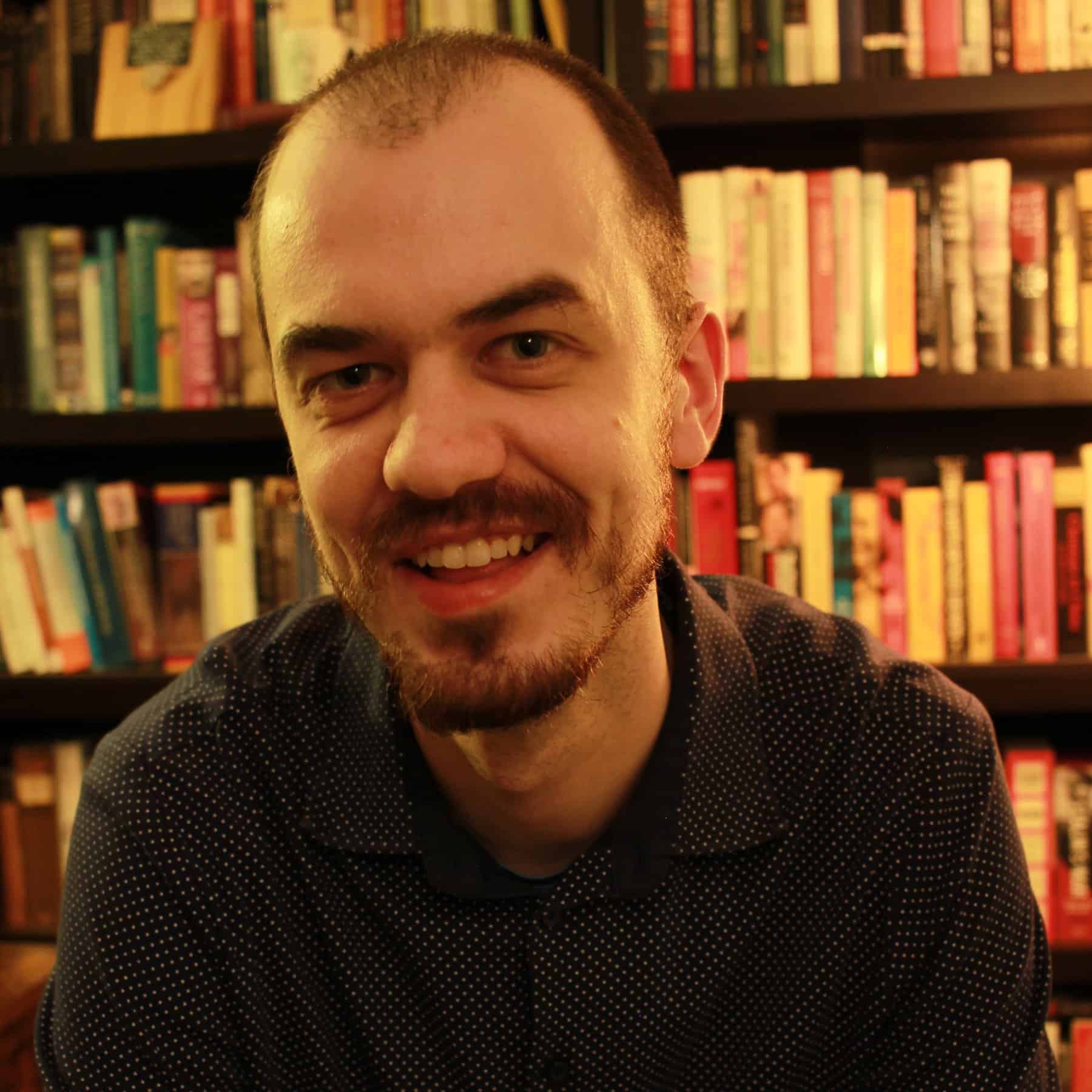
Stock Photo – Canva
By Dan Sherven
This series of reflections is based on Bishop Robert Barron’s The Mass. Watch Bishop Robert Barron’s The Mass through Word on Fire Catholic Ministries. Read the first article in this series here.
“Soon there comes a profound quietness—a brief instant of peace ‘beyond all understanding’ so authentic, so true, that even children seem to recognize it.” As the priest holds the Eucharist high for an Eternity. Abbot Jeremy Driscoll notes how “something is hidden under the appearance of the bread and wine. Faith perceives it.” And “after the celebrant elevates both Body and Blood so that we may see and adore, he will genuflect in adoration before them both, and solemnly declare, ‘The mystery of faith.’”
Heaven and earth have been reconciled in Christ. He is the New Adam, the perfect mediator between God and humanity. We are called to be unifiers of heaven and earth. Christ does that, offering Himself as a perfect sacrifice as only God can, which opens the doorway that He is, for us to become God, as much as it is possible for humans to do so, to use the saying of Saint Maximus the Confessor, because Christ is fully human, a bridge.
“‘This theme of eating and drinking with the Lord runs right through the Bible,” Bishop Barron says, “calling to mind God’s instructions to Adam and Eve that they eat; his order that the Hebrews enslaved in Egypt eat a Passover meal; Isaiah’s vision of the heavenly banquet; Jesus sharing meals with priests, Pharisees and tax collectors; the Last Supper; and the first Masses as they are described in the Acts of the Apostles and in the Epistles.”
There is also Abram, who has his wife, Sarai, set the table for the three strangers, who turn out to be angels, for it is said that through proper hospitality, some have unknowingly entertained angels, which can and does happen in Mass, too. However, we can become aware of that reality.
“God doesn’t need sacrifice. Therefore, it comes back to us. Now, we are going to eat and drink the Body and Blood of Christ, which we have offered to the Father,” Bishop Barron says. So sacrifices which are given up return to us in a more pure form, as Orthodox thinker Jonathan Pageau notes.
Now it’s time to enter fully into the mystery of the Mass: Communion.
Our reading points out, how sometimes after receiving the Eucharist, people will cover their faces in prayer: “The Reality of Christ within the Eucharist—the idea of the Son of God willingly enduring an unjust, terrible death to share in his broken body with his people that they might rise into Eternity with him—that’s a lot to take in.”
In due time, “the Mass is ended. Everything has been said; a sacrifice has been made; a meal has been eaten. It is finished. (Jn 19:30).” The Latin which the priest, or deacon, would say at the end of Mass is: Ite, missa est. A literal translation would be ‘Go, it is sent.’ For “once Noah’s Ark came upon land, Noah opened the doors and shooed out the animals. He ‘let the life out,’ as Barron puts it. It was necessary to do so in order to renew the face of the earth.” So, “we too now must go to let the life of Christ within us out in order to renew the face of the earth, one encounter at a time.”
In the Mass, as Bishop Barron notes, “‘We are gathered, we are fed, and finally we are sent’ back out into the world to evangelize.” Sometimes, it’s the relationships and how other people perceive the Christian after interacting with them that serve as the evangelization.
Pope Benedict XVI writes about the end of the Mass: “Ite, missa est. These words help us to grasp the relationship between the Mass just celebrated and the mission of Christians in the world. In antiquity, missa simply meant ‘dismissal.’ However, in Christian usage it gradually took on a deeper meaning. The word ‘dismissal’ has come to imply a ‘mission.’ These few words succinctly express the missionary nature of the Church.” God trusts us with His work on earth.
We leave the Mass and embark on a life of evangelization, whatever that looks like in our individual lives, remembering the Sacrifice of Praise: “Trusting in and praising God under all circumstances; surrendering your free will to God’s will for your life.” That’s what we learn to embody, not think, through the Mass. Standing on, and trusting in, the Ground of Being.
Learn more about Bishop Robert Barron’s The Mass.

Dan Sherven is the author of four books, including the number one bestseller Classified: Off the Beat ‘N Path and Uncreated Light. Sherven is also an award-winning journalist, writing for several publications. Find Sherven’s work.

